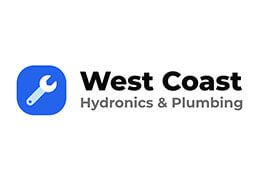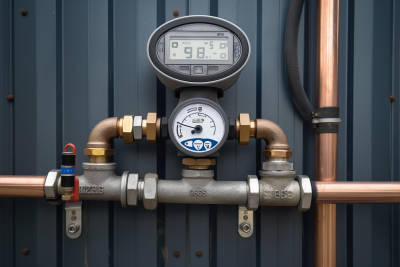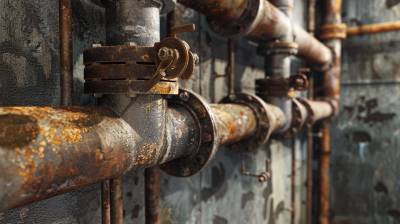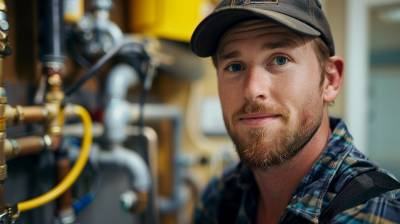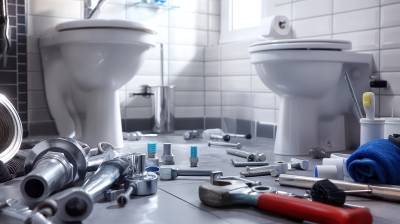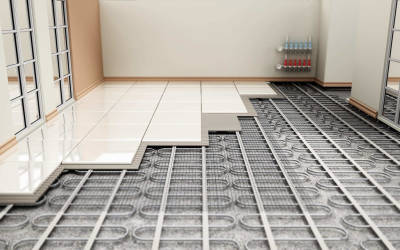The decision between ABS (Acrylonitrile Butadiene Styrene) and PVC (Polyvinyl Chloride) is a common one faced by those involved in construction, architecture, and plumbing. Both materials have been popular for many years due to their durability, versatility, and affordability. However, they do have distinct differences which can affect the efficiency and effectiveness of the projects that they are used on. Herein, we delve into the detailed comparison of ABS vs PVC, from their respective compositions, benefits, usage, to their environmental impact.
Understanding ABS and PVC
ABS and PVC are types of thermoplastic polymers, often used in construction and plumbing for their excellent qualities. ABS is a kind of copolymer plastic made by polymerising styrene and acrylonitrile in the presence of polybutadiene, while Polyvinyl Chloride (PVC) is a synthetic plastic polymer commonly used worldwide. Understanding their properties can help you make an informed decision on which is most suitable for your needs.
Composition of ABS
- Manufactured from Acrylonitrile, Butadiene, and Styrene
- Has high impact resistance
- Features excellent chemical resistance
Composition of PVC
- Constructed from Vinyl Chloride Monomer
- Offers excellent corrosion resistance
- Exhibits high durability in a variety of conditions
Key Differences between ABS and PVC
Whether you're dealing with a minor plumbing issue, working on a construction project, or even a DIY initiative, it's vital to understand the key differences between ABS vs PVC. This knowledge can help you make the right decision to ensure the quality and longevity of your constructions.
Tolerance to Temperature and Pressure
ABS is known for its high-impact resistance and toughness, with physical properties that remain stable over various temperatures. However, PVC demonstrates an excellent standing against extreme pressure and temperatures, making it a better option for hot-water piping.
Mechanical Properties
While both materials are remarkably strong and durable, they each offer their unique advantages. ABS, for instance, has superior shock-absorption abilities, making it ideal for applications where physical impact is an issue. In contrast, PVC has a higher tensile strength, which translates to better longevity under continued force, making it the perfect choice for applications like water pressure systems.
Cost Considerations
On a broad scale, ABS often turns out to be the more cost-effective option due to its lower material and installation costs. However, PVC can prove to be a more economical choice in the long run, considering its durability and fewer needs for replacement.
Environmental Impact of ABS vs PVC
Environmental consideration is another crucial aspect when it comes to the comparison between ABS vs PVC. From their manufacturing process to disposal, both materials have a unique environmental impact.
ABS Environmental Impact
ABS production involves the use of petroleum, a non-renewable resource, which slightly taints its environmental footprint. Moreover, ABS isn't biodegradable, making it less eco-friendly. On the positive side, it is easily recyclable, contributing positively to waste management efforts.
PVC Environmental Impact
The PVC manufacturing process mainly relies on salt (57%) which reduces its dependence on non-renewable resources. However, it does involve the use of chlorine, which has its environmental consequences. Notably, PVC can be easily recycled, but care should be taken when disposing of it due to the harmful dioxins it can release if incinerated.
Applications of ABS and PVC
ABS and PVC are used in a wide array of applications due to their versatility. Here are some of the common uses of these two materials:
Applications of ABS
- Waste and Vent Plumbing
- Prototyping material in 3D printing
- Automotive components
Applications of PVC
- Water Supply Pipes
- Medical devices
- Doors and Windows
When deciding between ABS and PVC for your project, it is essential to consider the unique qualities of each material. PVC is known for its resistance to heat and pressure, making it ideal for applications that involve hot water or high-pressure systems. ABS, on the other hand, is resistant to physical impact and is a practical choice for projects that require durability and toughness. Your choice of ABS vs PVC will largely depend on the specific needs of your project, considering aspects like cost, environmental impact, and application.
Frequently Asked Questions About ABS vs PVC
Can ABS and PVC be used interchangeably?
While ABS and PVC share several similarities, they aren't always interchangeable. The decision to use one over the other depends on the application, local building codes, and personal preference. For example, in plumbing, both can be used, but local regulations may favor PVC over ABS.
Is ABS or PVC more durable?
Both ABS and PVC are highly durable materials. ABS is known to be more impact-resistant, making it slightly tougher in physical terms. However, PVC is better at resisting ultraviolet light, making it more durable in outdoor applications where exposure to sunlight is regular.
Is ABS or PVC more expensive?
The cost of both ABS and PVC usually depends upon the region, the manufacturer, and the specific product. However, in general, PVC tends to be slightly more expensive than ABS. That said, the total cost may also depend on installation and maintenance requirements.
Can ABS and PVC be glued together?
Yes, ABS and PVC can be glued together. However, it’s essential to use a specific type of cement known as ABS to PVC transition cement. This special glue can bond these two different types of plastic together. Be aware that not all local codes allow for their joint use, so be sure to check before starting a project.
Are ABS and PVC safe?
Absolutely. Both ABS and PVC are safe materials. They are both non-toxic and resistant to chemical degradation. However, like all synthetic materials, they should be handled appropriately and installed with care to prevent any risk associated with sharp edges or improper assembly.
Does ABS or PVC have better chemical resistance?
While both ABS and PVC offer resistance to many chemicals, PVC is generally considered to have superior resistance. It can withstand exposure to acids, alkalis, salts, and many other types of chemicals.
Can ABS or PVC be used for outdoor applications?
Both ABS and PVC can be used for outdoor applications. However, PVC tends to be the more popular choice because of its resistance to UV light.
Pros and Cons of ABS Vs PVC
Pros of ABS (Acrylonitrile Butadiene Styrene)
Durability and Impact Resistance
ABS is a highly durable material known for its ability to withstand heavy impacts and shocks. It's especially suitable for applications where toughness is required. This robustness gives ABS a clear advantage over PVC in some use cases.
- ABS has a very high impact resistance compared to PVC.
- ABS is less likely to crack or split under pressure or impact.
Low-Temperature Performance
ABS performs better in low-temperature conditions. Unlike PVC pipes, they don't become brittle or susceptible to damage in cold weather, making them an excellent choice for outdoor applications in colder climates.
- ABS is less affected by cold temperatures, which increases its durability in such conditions.
- ABS can maintain its shape and strength in freezing climates, unlike PVC.
Easy Installation
ABS is generally easier to install than PVC. It requires less time to cure, allowing quicker installation times. This feature makes ABS an attractive option when speed is a key consideration.
- With ABS, you can save time during installation, as it doesn't require a primer like PVC does.
- ABS components are easier to cut and shape, offering flexibility during installation.
Cons of ABS (Acrylonitrile Butadiene Styrene)
Chemical Sensitivity
ABS is more sensitive to certain chemicals compare to PVC. In environments where chemical exposure is significant, ABS may not last as long or perform as well as PVC.
- ABS is prone to degradation by exposure to UV rays and certain harsh chemicals.
- Prolonged exposure to sunlight can cause ABS to warp and lose colour.
Cost
ABS is typically more expensive than PVC. It's important to consider your budget, alongside other factors such as durability and ease of installation, when deciding between these two materials.
- For low-budget projects, PVC may be a more cost-effective choice.
- ABS' higher cost can be off-putting for some, despite its desirable properties.
Pros of PVC (Polyvinyl Chloride)
Chemical Resistance
PVC is a type of plastic that has superior resistance to many kinds of chemicals. This makes the material suitable for application in environments where it may come into contact with various chemical substances.
- PVC has a broad chemical resistance, unmatched by ABS.
- PVC is more suitable for transporting substances with a high acid, alkali, or alcohol content.
Cost
One of PVC's main advantages over ABS is its cost-effectiveness. PVC is generally cheaper and more widely available, making it the go-to choice for many contractors and DIY enthusiasts working on a budget.
- PVC is less costly than ABS, and this cost advantage can accumulate over large projects.
- PVC's widespread availability often translates into lower costs.
Flexibility
PVC’s flexibility is one of its biggest benefits. This makes the material ideal for a variety of construction projects or other applications where flexibility is desirable.
- The flexibility of PVC allows it to withstand pressure changes better than ABS.
- PVC can be manufactured in a wide range of flexibility levels, providing options to suit various needs.
Cons of PVC (Polyvinyl Chloride)
Weather Sensitivity
In colder climates, PVC tends to become more brittle and can crack under pressure. This presents a significant disadvantage compared to ABS, which maintains its durability in all weather conditions.
- In cold environments, the durability of PVC can be compromised.
- Repeated exposure to freezing and thawing cycles can cause PVC to crack.
Installation Process
The installation process of PVC is more time-consuming compared to ABS, as it typically requires both a primer and glue for proper installation.
- PVC installation involves more steps and is typically slower than the installation of ABS.
- The need for both primer and glue in PVC installation can increase overall project costs.
Toxicity
When burned, PVC can produce dense, toxic smoke this can be hazardous in case of a fire.
- PVC can produce dioxin, a potent carcinogen, when ignited.
- This aspect of toxicity is particularly relevant for PVC used in construction, where electrical fires may occur.
Summary
When it comes to the debate of ABS vs PVC, it's clear that both materials have their unique strengths and applications. ABS is appreciated for its shock resistance, making it a better choice for applications that require durability and strength. On the other hand, PVC shines for its affordability and flexibility, making it a practical choice for non-critical applications.
It's also important to consider environmental factors in the ABS vs PVC comparison. Both these plastics impact the environment differently. While ABS is generally seen as less environmentally friendly due to its non-biodegradable nature, PVC has its own environmental issues. It's a significant source of dioxins, a group of toxic chemicals that can harm human health and the environment. Thus, it's important to choose wisely considering the impact on the environment as well.
Lastly, in the ABS vs PVC debate, understand the specifics of your project as the applications of these materials matter. While ABS is typically used in applications requiring impact resistance and toughness such as pipes, toys and enclosures, PVC is often used for pipes, clothing and cable insulation. Therefore, the best choice between ABS and PVC depends on the specific requirements of the project.
About West Coast Hydronics & Plumbing
Located in Sacramento, CA, West Coast Hydronics & Plumbing is a renowned company dedicated to fulfilling your home maintenance needs. From minor fixes to major renovations, our team of seasoned professionals delivers top-notch services across the board. Whether you're dealing with a busted pipe or looking to install a new radiant heating system, we've got you covered. Learn more about us on our website where we also share useful tips and insights in our sector. Come experience a new level of convenience and professionalism with West Coast Hydronics & Plumbing!
